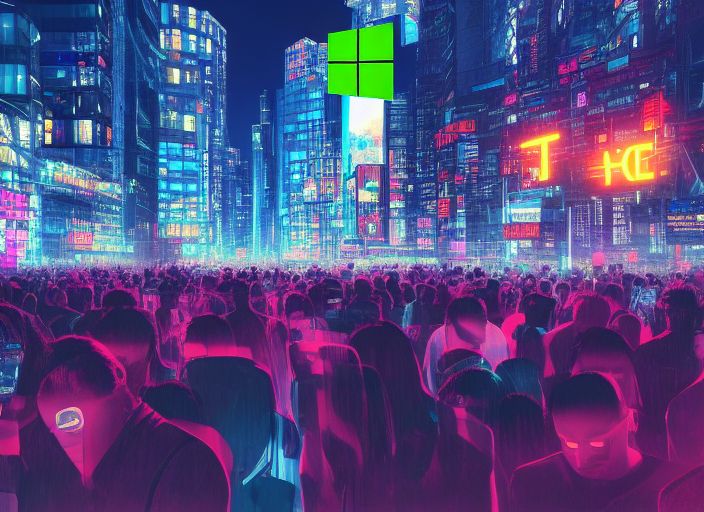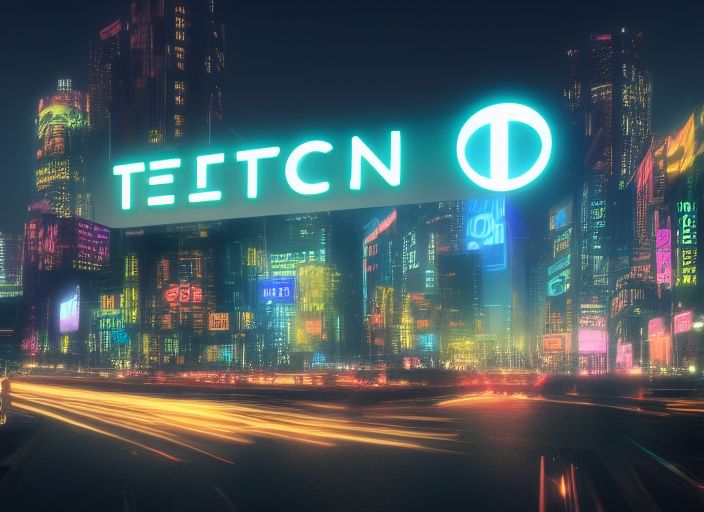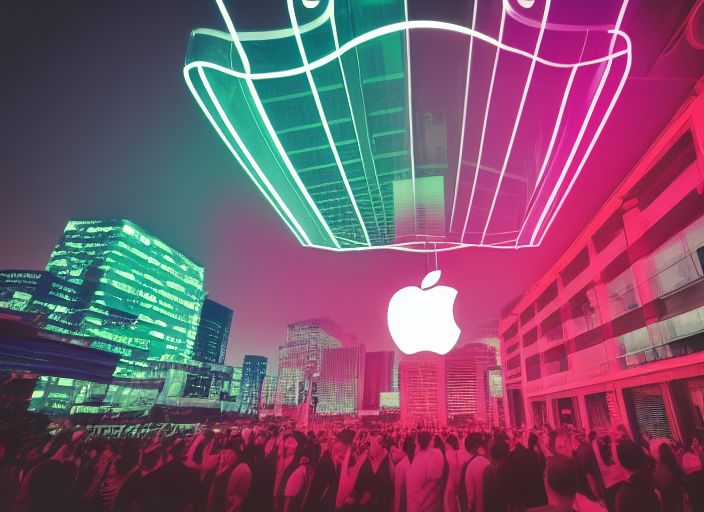7 Global Companies Building Up and Exploring the Metaverse


In Brief
Big IT companies are pursuing their own strategies to influence the future in the Metaverse
As the metaverse continues to develop, we are seeing more and more content and platforms being created by both small crypto projects and huge tech giants like Google and Facebook. These companies are beginning to realize the potential of the metaverse and are starting to invest in their own development efforts. For example, Google is taking a subtle approach that emphasizes augmented reality to connect the digital and real worlds.

Meta, now known as Facebook, is venturing into the metaverse. This includes a public rename and a shift in direction for the company. They own VR hardware and have their cryptocurrency Libra project underway. Microsoft is focusing on virtual offices and working environments in the metaverse too. Different from standard video call collaboration, companies will create permanent virtual spaces for employees to work in together this new world.
Epic Games has two distinct metaverse approaches. To begin, it aims to build a better user experience and technological foundation to accommodate more players. It also wants to assist creators in producing high-quality 3D assets for the metaverse.
Tencent is a Chinese company that is one of the world’s largest video game publishers and messaging service providers. They’ve made it clear that gaming serves as an entry point to the metaverse with their current technology, which has already been implemented.
Top Global Companies Building up the Metaverse

The metaverse, according to Google CEO Sundar Pichai, is “an evolving computing in an immersive way with augmented reality.” In fact, Google has extensive expertise with augmented reality thanks to its Google Glass product. In November 2021, Google restructured its VR and AR departments into a new Google Labs team that includes the holographic video conferencing tool Project Starline.
The emphasis right now at Google appears to be on connecting us through augmented avatars, which combine the digital and physical realms. While we haven’t seen a Google metaverse proposal yet, the groundwork seems to be in place.

In May 2021, Facebook announced that it was rebranding to Meta, a name that better reflects the company’s mission to “give people the power to build community and bring the world closer together.” Facebook also has a long history with virtual reality, dating back to its Oculus acquisition in 2014. The social media giant is currently focusing on building out its AR platform, called Spark AR.
| Read more about Facebook |
|---|
| Meta is experimenting with Ethereum and Polygon NFTs on Facebook |
In addition, Facebook is working on a cryptocurrency called Libra that could be used to purchase virtual goods and services in the metaverse. While Libra is still in development, it’s clear that Facebook is thinking about how digital currency can be used in the metaverse.
Microsoft

While Microsoft doesn’t have any plans to create its own metaverse, it is working on making its existing products more metaverse-ready. For example, the company’s Office 365 suite now includes a virtual reality app called Immersive Reader that lets users view documents in a 3D environment.
Microsoft is also focusing on how the metaverse can be used for work. The company’s smash platform lets users create avatars that can be used in virtual meetings and conferences. And Microsoft’s Azure cloud computing service is being used by some metaverse developers to power their creations.
Tencent

Tencent is one of the world’s largest video game publishers and also owns the messaging app WeChat. The company has been working on developing its own metaverse for several years and has already made some progress.
Tencent’s Metaverse is called WeChat Open World and it launched in 2019. The platform allows users to create 3D avatars and explore virtual spaces. WeChat Open World is currently only available in China, but Tencent has plans to expand it to other markets.
| Read more about Tencent |
|---|
| Tencent testing NFTs as PFPs, set to launch NFT collection and virtual music room |
The company’s present headquarters are in Hangzhou, Zhejiang province. It is the leading video game provider based on revenue and market share, as well as owning Chinese social networks and messaging platforms WeChat and Tencent QQ. Both of these spaces are crucial to the metaverse’s growth. Tencent QQ, for example, already has gaming, e-commerce, music, films, and voice chat functions available through its website. The WeChat payment app allows you to connect your mobile payments to its social media platforms.
It also has a “mini-program” platform within the app that allows other companies to develop their own programs for users to access without having to download them. These two examples show how Tencent is blurring the lines between the physical and virtual worlds, making it easier for users to move between the two.
Apple

Apple is one of the few companies that has been working on a metaverse product in secret. The company has filed multiple patents related to virtual reality and augmented reality, leading to speculation that it is working on its own metaverse platform.
In addition, Apple has been hiring experts in the field of virtual worlds and avatars. These hires suggest that the company is serious about creating a metaverse product.
Amazon

While Amazon doesn’t have any plans to create its own metaverse, it is working on making its existing products more metaverse-ready. For example, the company’s Office 365 suite now includes a virtual reality app called Immersive Reader that lets users view documents in a 3D environment.
Amazon is also focusing on how the metaverse can be used for work. The company’s smash platform lets users create avatars that can be used in virtual meetings and conferences. And Amazon’s AWS cloud computing service is being used by some metaverse developers to power their creations.
IBM

IBM is one of the world’s largest tech companies and it has been working on virtual reality technology for decades. The company is currently focusing on how the metaverse can be used for work.
IBM’s Ava platform lets users create avatars that can be used in virtual meetings and conferences. And the company’s Watson AI service is being used by some metaverse developers to power their creations.
FAQs
The relevance of the metaverse itself is where the Google metaverse comes from. The best way to think of the metaverse is as a totally virtual environment that coexists with the real world. Devotion on the part of an architect can result in the construction of distinctive physical spaces.
With the addition of the platform’s Amazon AR View, Amazon has already begun integrating Metaverse technology into its digital marketplace since the invention of computer-generated simulation. Customers can use augmented reality to design and decorate their homes with the AR View tool.
McDonald’s is one of several international brands that believe it to be the future of marketing and customer service.
Users can interact, play, and transact in the sophisticated virtual and augmented reality experience known as the metaverse. Brands have the chance to reach a larger audience, leave a digital footprint, and even increase their revenue by engaging in metaverse marketing.
It appears that augmented reality and virtual reality are both used by the Apple metaverse. The business is also developing hardware specifically for each approach. An AR/VR mixed reality headset will be the first product released. The metaverse is fundamentally approached in a “best of both worlds” manner.
Microsoft revealed on Tuesday that Kawasaki will help build robots in its facilities by utilizing the “industrial metaverse.” The innovation enables factory floor workers to overlay digital graphics in a real-world setting using Microsoft’s HoloLens headset.
Conclusion
The race to develop the metaverse is already underway. Some of the world’s largest companies are investing billions of dollars into the creation of virtual worlds that will eventually be connected to form a single, global metaverse.
While the metaverse is still in its early stages of development, it has the potential to change the way we live, work, and play. So far, the focus has been on creating 3D virtual spaces for gaming and entertainment. But in the future, the metaverse will be used for much more than that. It will be a place where we work, shop, socialize, and even live.
Related articles:
Disclaimer
In line with the Trust Project guidelines, please note that the information provided on this page is not intended to be and should not be interpreted as legal, tax, investment, financial, or any other form of advice. It is important to only invest what you can afford to lose and to seek independent financial advice if you have any doubts. For further information, we suggest referring to the terms and conditions as well as the help and support pages provided by the issuer or advertiser. MetaversePost is committed to accurate, unbiased reporting, but market conditions are subject to change without notice.
About The Author
Damir is the team leader, product manager, and editor at Metaverse Post, covering topics such as AI/ML, AGI, LLMs, Metaverse, and Web3-related fields. His articles attract a massive audience of over a million users every month. He appears to be an expert with 10 years of experience in SEO and digital marketing. Damir has been mentioned in Mashable, Wired, Cointelegraph, The New Yorker, Inside.com, Entrepreneur, BeInCrypto, and other publications. He travels between the UAE, Turkey, Russia, and the CIS as a digital nomad. Damir earned a bachelor's degree in physics, which he believes has given him the critical thinking skills needed to be successful in the ever-changing landscape of the internet.
More articles

Damir is the team leader, product manager, and editor at Metaverse Post, covering topics such as AI/ML, AGI, LLMs, Metaverse, and Web3-related fields. His articles attract a massive audience of over a million users every month. He appears to be an expert with 10 years of experience in SEO and digital marketing. Damir has been mentioned in Mashable, Wired, Cointelegraph, The New Yorker, Inside.com, Entrepreneur, BeInCrypto, and other publications. He travels between the UAE, Turkey, Russia, and the CIS as a digital nomad. Damir earned a bachelor's degree in physics, which he believes has given him the critical thinking skills needed to be successful in the ever-changing landscape of the internet.
















































